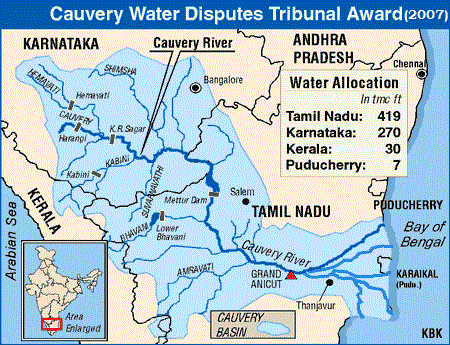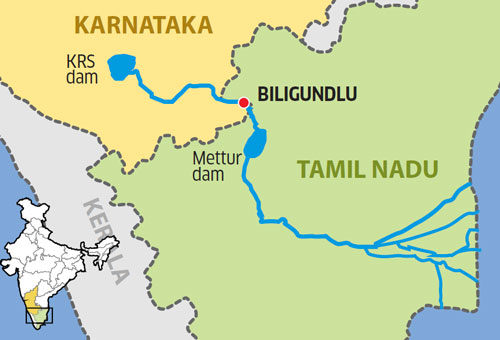7667766266
enquiry@shankarias.in
Why in news?
The Supreme Court has pronounced its verdict on the sharing of Cauvery water among Tamil Nadu, Puducherry, Karnataka and Kerala.
How did the Cauvery dispute emerge?

What was the Tribunal's order?

What was the response?
What is the present SC verdict?

CMB will be an inter-state forum which will work to ensure the implementation of orders of the CWDT.
The Board shall be under the control of the Ministry of Water Resources.
The members of the Board will include a Chairman, two full-time members, and representatives of the central government and each of the four states.
The expenses of the Board will be borne by the state governments.
Source: The Indian Express, The Hindu